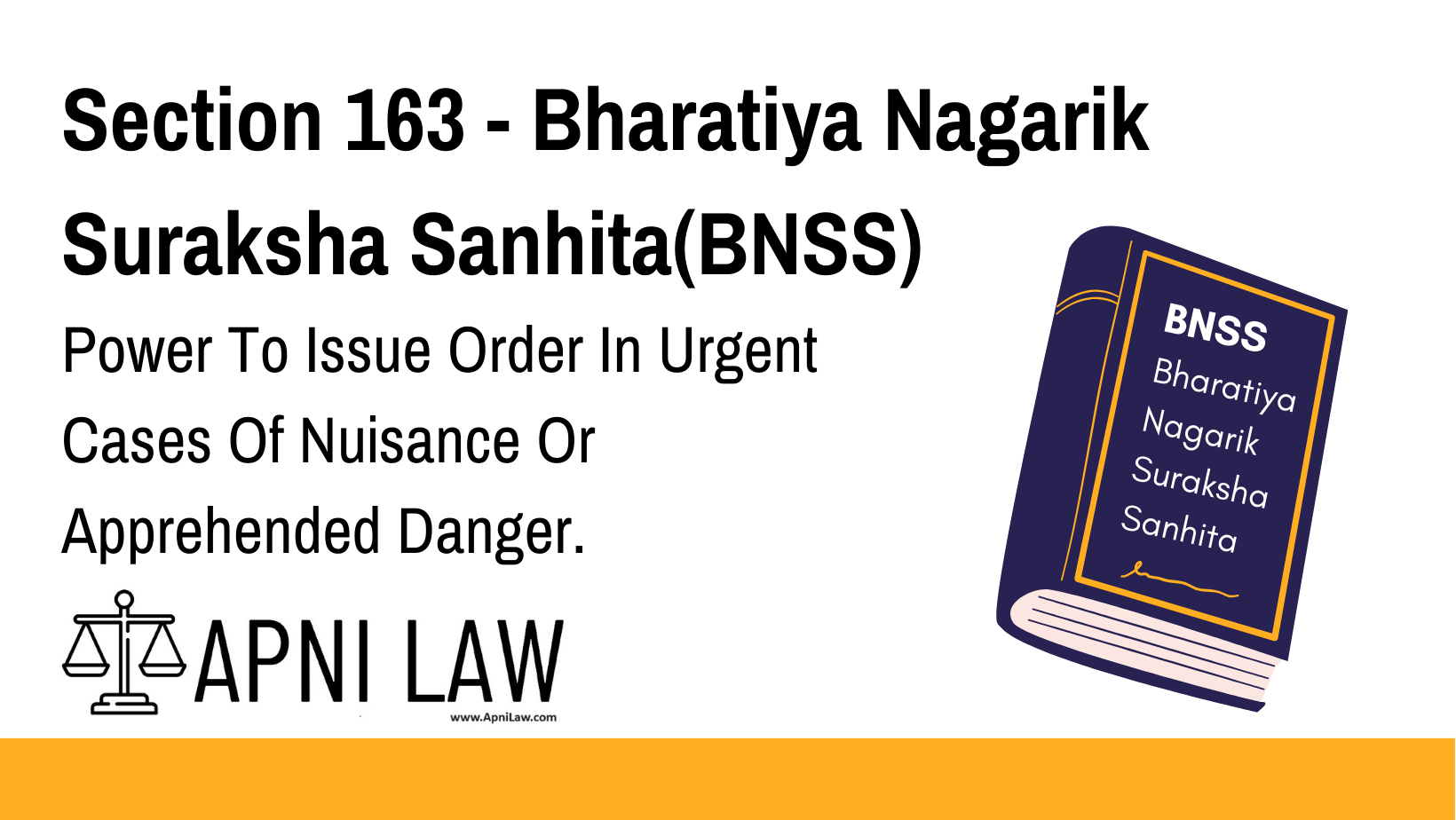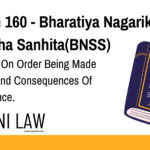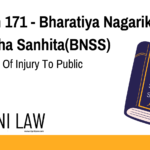Code: Section 163 BNSS
(1) In cases where, in the opinion of a District Magistrate, a Sub-divisional
Magistrate or any other Executive Magistrate specially empowered by the State Government
in this behalf, there is sufficient ground for proceeding under this section and immediate
prevention or speedy remedy is desirable, such Magistrate may, by a written order stating
the material facts of the case and served in the manner provided by section 153, direct any
person to abstain from a certain act or to take certain order with respect to certain property
in his possession or under his management, if such Magistrate considers that such direction
is likely to prevent, or tends to prevent, obstruction, annoyance or injury to any person
lawfully employed, or danger to human life, health or safety or a disturbance of the public
tranquillity, or a riot, or an affray.
(2) An order under this section may, in cases of emergency or in cases where the
circumstances do not admit of the serving in due time of a notice upon the person against
whom the order is directed, be passed ex parte.
(3) An order under this section may be directed to a particular individual, or to persons
residing in a particular place or area, or to the public generally when frequenting or visiting
a particular place or area.
(4) No order under this section shall remain in force for more than two months from
the making thereof:
Provided that if the State Government considers it necessary so to do for preventing
danger to human life, health or safety or for preventing a riot or any affray, it may, by
notification, direct that an order made by a Magistrate under this section shall remain in
force for such further period not exceeding six months from the date on which the order
made by the Magistrate would have, but for such order, expired, as it may specify in the said
notification.
(5) Any Magistrate may, either on his own motion or on the application of any person
aggrieved, rescind or alter any order made under this section by himself or any Magistrate
subordinate to him or by his predecessor-in-office.
(6) The State Government may, either on its own motion or on the application of any
person aggrieved, rescind or alter any order made by it under the proviso to sub-section (4).
(7) Where an application under sub-section (5) or sub-section (6) is received, the
Magistrate, or the State Government, as the case may be, shall afford to the applicant an
early opportunity of appearing before him or it, either in person or by an advocate and
showing cause against the order; and if the Magistrate or the State Government, as the case
may be, rejects the application wholly or in part, he or it shall record in writing the reasons
for so doing.
Explanation of Section 163 BNSS
Purpose and Scope
Section 163 BNSS grants powers to certain Magistrates to issue urgent orders to prevent public disturbances, nuisance, or threats to life and safety. These orders serve as preventive measures and can be enforced without prior notice in emergencies.
Key Provisions
- Immediate Prevention: Magistrates can act without delay to prevent harm to public peace and safety.
- Ex-Parte Orders: Orders can be issued without prior notice in urgent cases.
- Limited Duration: Orders cannot exceed two months, but the State Government may extend them for up to six months.
- Right to Appeal: Affected individuals can appeal to Magistrates or the State Government for modifications or rescissions.
Illustration
Example 1: Preventing a Riot
A dispute arises between two communities in a town, with tensions escalating. The District Magistrate, fearing a riot, issues an ex-parte order under Section 163 directing people not to assemble in the area for the next two months.
Example 2: Public Health and Safety Concern
A factory releases hazardous fumes into a residential area. The Sub-Divisional Magistrate, acting under Section 163, orders the factory owner to cease operations immediately to prevent a public health crisis.
Common Questions and Answers on Section 163 BNSS
1. Who has the authority to issue an order under Section 163 BNSS?
- Answer: A District Magistrate, Sub-Divisional Magistrate, or any Executive Magistrate specially empowered by the State Government.
2. Can an order under Section 163 BNSS be passed without notice?
- Answer: Yes, in cases of emergency, an order can be passed ex parte, meaning without prior notice to the affected party.
3. How long can an order under Section 163 remain in force?
- Answer: The maximum duration is two months, but the State Government may extend it for up to six months if necessary.
4. Can a person challenge an order issued under Section 163 BNSS?
- Answer: Yes, an aggrieved person can apply to the Magistrate or State Government to rescind or alter the order.
5. What happens if an order under Section 163 BNSS is violated?
- Answer: Failure to comply with the order may lead to legal action, fines, or imprisonment under applicable laws.
Conclusion
Section 163 of BNSS is a preventive legal provision empowering Magistrates to act swiftly against public nuisances, dangers, and potential threats. By allowing quick intervention, it helps maintain public order, safety, and peace, ensuring that emergencies are handled effectively.
For more details, refer to Section 153 BNSS, which outlines the method of serving orders.








